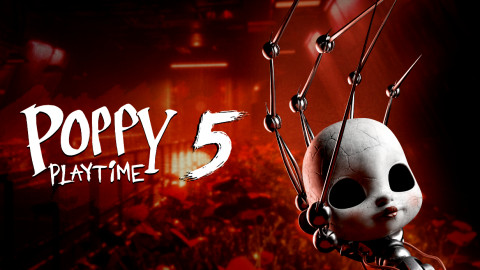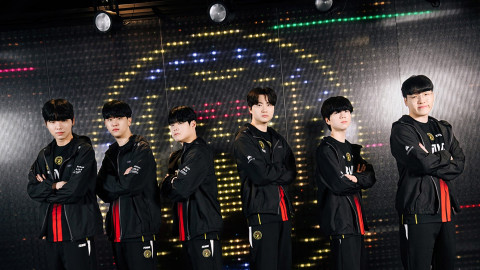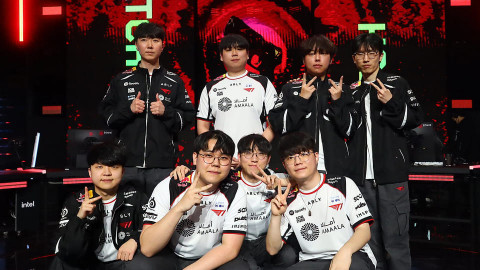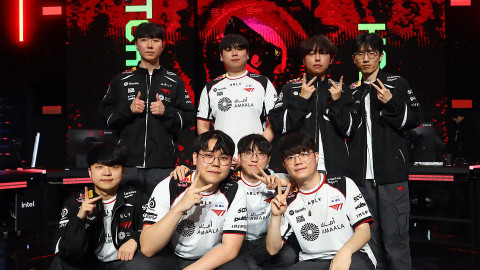
When content creator and host Michele Morrow decided to criticize Tyler "Ninja" Blevin's interview — where he doubled down on his decision to not stream with women —the popular streamer's fans decided to attack her in his honor.
Morrow shared screenshots of the ongoing harassment on Twitter. To the people who agreed with Morrow that Ninja should call out these sexist trolls, Ninja said: "Don't be baited by this or the thousands of people who follow me but do not support me or my values."
Since this Twitter exchange, Ninja has still not made any public statements condemning the actions of those followers. This has upset many people in the streaming community, who feel he has an obligation to do something due to his large platform. But does he? Should he?
Let’s be clear. Ninja can’t physically control the actions of his millions of followers. I’m getting that out of the way. Nobody expects Ninja — or any other big streamer — to do this. But what we do expect is for streamers to condemn the negative actions of their followers. By making a public statement to their fans, streamers can denounce bullying, harassment, and trolling, making their stance on these actions known.
You can argue that some followers won’t listen — and they very well might not. But at this point, it wouldn’t be the fault of the streamer. If the streamer is willing to make a public statement about their stance or even threaten to block and ban viewers who go against their wishes. This would show that the streamer takes responsibility for the actions of their followers.
Because we shouldn’t downplay the influence Ninja has. He has almost 15 million followers on Twitch. He has been in Super Bowl commercials. He performed (if flossing counts) at a New Years Eve party in Times Square. And Ninja’s viewers are children — that might be the most important one. To claim that many of his followers — even trolly ones — wouldn’t listen when Ninja tells them to stop bullying others is false.
Fellow Twitch star Felix “xQc” Lengyel has said multiple times in stream that he won’t tolerate viewers who harass other streamers. He’s also issued bans to fans who have still decided to go against his wishes and bully other content creators. For the most part, xQc’s viewers have realized his stance — and that he’s serious about it — and have listened. Why shouldn’t we expect the same from Ninja’s fanbase? Which means — why shouldn’t we expect Ninja to make any type of effort to denounce his fans’ toxic behavior.
It’s time for popular streamers to accept that they have influence over their fans and take some responsibility. Step up and denounce toxic behavior. Make a video saying that you won’t tolerate bullying. Tell your fans during a popular streaming hour that you will ban anyone who bullies someone online. Staying silent is no longer something we should tolerate. Silence is complicity.
When a situation like the latest one with Ninja’s fans arises, there’s always the question of “Who’s responsible?” We ask it when K-pop fans raid someone’s timeline if they use the wrong monkey emoji for their favorite singer. We ask it when anonymous trolls send death threats or spread bigotry and obscenities that have never – and should never be – acceptable in any civilized society (and only fly thanks to the guise of anonymity). We asked it when the fans of T1, an esports organization with unmatched legacy, harassed caster Nick “LS” de Cesare into social media exile for weeks before sending funeral wreaths to the team’s headquarters.
“Who’s responsible?”
It’s a valid question. You have to ask it so that a solution presents itself. But so often — always, almost — we tend to misallocate that responsibility. So often, we ignore the sound, logical choice for the one with bigger clout, bigger following, bigger name.
It’s easy to imprint a famous name, be it Ninja or whoever else, with the burden of responsibility. After all, in the modern age where they thrive, influence is its own currency. And from there, the expectations bloat. You can’t only be a streamer or a gamer anymore. You have to be a role model — and to millions. 24.2M follow Ninja on YouTube, 6.6M more on Twitter. 30 million people that you are supposed to be a moral compass to, all before you’ve even turned 30…
Don’t get me wrong, I’m not shedding a tear for a multimillionaire celebrity. I’m merely asking why is this all Ninja’s (or, again, another name of your choice) responsibility to get his horde of followers in order — a task that my opponent herself admits as impossible. Would it be great if streamers made a more public denouncement of widespread online harassment? No doubt, but it seems to me there’s a bigger, possibly even unfair, ask behind that.
Why are the streamers always the first one we demand things from? Why is it never the media platforms like Twitter, which remain OK with banning people for political ideologies, but won’t act against online harassment in its widespread form? Why is it we never look inward towards our own homes, where such behavior is rooted and developed first? There have always been awful people in this world. There’s been a Ninja for five years.
Yes, a public denouncement from a streamer of Ninja’s stature would be great. It’s undoubtedly the right PR move too, even if it's just to show solidarity with the victims of harassment. It will score him some popularity points and get him “off the hook,” as Olivia points out.
But that’s not the point, is it? The point is for this harassment to stop, and it’s unfair that Ninja, or other streamers in his position, are held responsible to that extent.
What disturbs me about my Rado’s argument is that he calls it a “demand” to ask Ninja and other big streamers to denounce bad behavior in a more public, official way. He makes it seem as if this is some burden, something difficult that would be asking too much of Ninja. This is the exact same attitude many streamers exuded that caused me to speak up about this to begin with.
I saw a response from former Overwatch League commentator Malik Forte that stood out to me during the whole situation with Ninja. He asked, “What’s with dudes struggling to condemn their toxic supporters?”
And that brings me to my biggest concern with my opponent’s counter-argument: Why is this even a fight to begin with?
I would never claim that Ninja’s statement would stop every single fan from being a bully or saying something toxic. But WHY. CAN’T. HE. AT. LEAST. TRY? Would it really be so difficult for Ninja to make a tweet that states how upset he is when his fans bully others in his name? Would it really be beyond laborious for him to create a video discussing his disdain for fans acting toxic?
The fact of the matter is that it’s not hard to do. It would take less time for Ninja to make a quick video condemning toxic fans than it has taken for us to debate this topic back and forth. And since it’s so easy to do, why not do it? Why not speak out against the bullying and sexism that your own statements have caused?
Even if it only stopped one fan from being a jerk wouldn’t it be worth it? I don’t see a reason why streamers shouldn’t make these types of videos that directly address their fans. Ninja has pull. He has influence. And even more importantly, he knows it. If he knows there is a chance that a public statement would change the mindset of some of his fans, I think it’s irresponsible — and telling — that he wouldn’t make that minuscule effort.
Rado also brings up the fact that Twitch and other platforms should be held responsible for not reacting to harassment. That is something I agree with wholeheartedly. But streamers shouldn’t rely on Twitch, a company with a CEO who laughed at a woman getting harassed at an event, to suddenly ban all of their toxic fans. While Twitch should be held accountable for their minimal efforts in thwarting sexism on their platform, that doesn’t mean streamers shouldn’t stand up against bullying and toxicity. That doesn’t mean they shouldn’t make their stance known to their impressionable following.
Again, it may not change every toxic fans’ actions in the future, but it’s important that popular streamers acknowledge their influence and use it to inspire their fans to do better. It’s not just a PR move. It’s a way to prove the streamers themselves are against bullying, sexism, and harassment. And it’s a way for them to take action against these ongoing issues in the streaming community.
And you might argue, “Not all streamers are against bullying and sexism.” But Ninja already said in a casual reply to someone on Twitter that his “true fans” would know he is against those things. But do they know? Has he ever said that? And if he is against that, he should make it known. He shouldn’t be afraid to condemn fans who go against his alleged values. It’s just not that hard to do so there’s no reason not to.
It’s a PR move because if it’s made so that “it wouldn’t be the fault of the streamer” — knowing it will likely lead to no at-scale change of behavior — is the definition of PR. It’s made to clean up one’s image, which many argue Ninja desperately needs, instead of being a purposeful driving force towards the betterment of a community (because, as we established, it won’t be, evidenced by the dozens of cases where fans, even threatened with lawsuits, continue to be assholes).
I already admitted that a more public denouncement would be a good idea for Ninja, siding here with Olivia. But what I’m arguing at the core is different. What I’m looking for is who is really responsible so that instead of asking streamers to fight a forlorn battle, we actually re-focus our attention and find a real solution.
First, we assume toxic fan behavior is “the fault of the streamer.” It isn’t. It is, first and foremost, the fault of the toxic fan. Every time such a person harasses someone, they are making the conscious decision to be harmful, and what Twitch chat habitats they frequent has a tertiary influence at best. But we move past that.
Then, this person takes his anger and malice and spills it on a social media platform, one supposedly with strict Terms and Services, which are, however, applied on a “if I feel like it” basis. We don’t lean on the absolute power of these companies — even though we do on so many other occasions — and we move past that, too.
Once past these checkpoints, there’s only one conclusion that satisfies us: the influencer! It’s their fault. “My shitty child broke the strict rules of a multi-billion dollar social media corporation to send death threats to an innocent person, and it’s all Ninja’s fault.”
Olivia says streamers shouldn’t rely on Twitch, a company with hypocritical and bigoted CEO… But why shouldn’t they? Why is this not the first entity we hold accountable? They are, after all, the ones with the most power — real power — to battle harassment. It’s not Ninja, and it’s not any other “influencer.”
So often today we lean on the romantic idea that influencers have to be the morality preachers of the modern age. It’s a calming notion, no doubt about it, and there’s nothing outrageous with hoping — wanting! — them to be better people, to act like we think they should act, to say what (and how) we think they should say. Why stay silent when they can tweet? Why just tweet when they can make a statement? Why make a statement when they can make a video? Why make a video when…
Yes, it is easy to do all that but that’s also never the end of it. A video will get Ninja off the hook only until the next time a Ninja fan harasses someone. How do I know this? Because in August, xQc promised to clean the toxicity from his fan base. In January 2021, he was once again being targeted on the behalf of his toxic fans. “Not encourage” is never enough, because god forbid we outrageously expect people to control their own moral compass and follow a basic social code.
Influencers can win the battle against online harassment no more than governments can win the war on drugs. Make a statement, make a video, tweet out, stand in solidarity — that’s all great and, as I admitted, perhaps the “right” thing to do. But that’s merely the path to better public perception and not the path to tangible change.
It’s time for Ninja to make a 15,000 square-foot billboard in Times Square where he tells his fans not to be bullies while flossing. The real test will come if the fans do not make any negative statements about the billboard.
THAT I would be on board for. Make it like something from a dystopian future, like in Equilibrium or V for Vendetta. Ninja is now our virtual Allfather.
-

Esports editor and journalist of 10+ years. Lives on black tea and corgi love.
-

Esports writer and editor with a passion for creating unique content for the gaming community.
Sort by:
Comments :0





